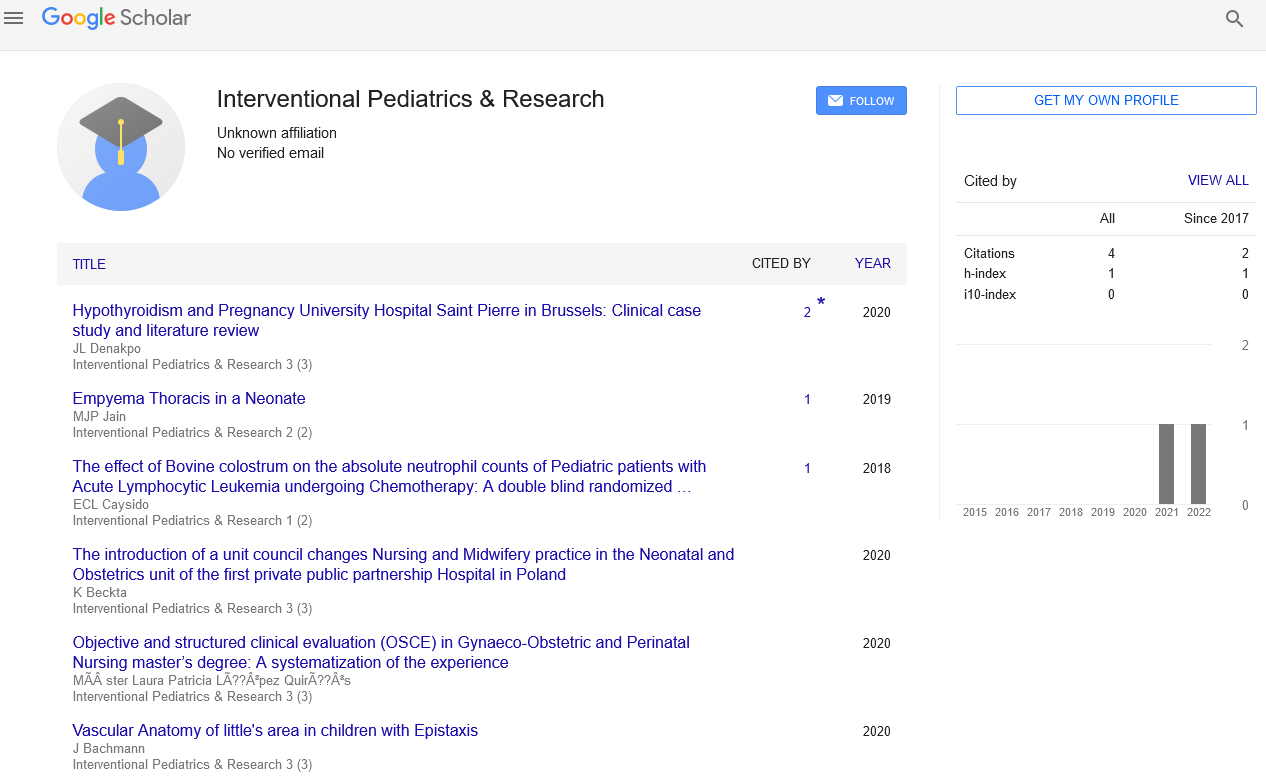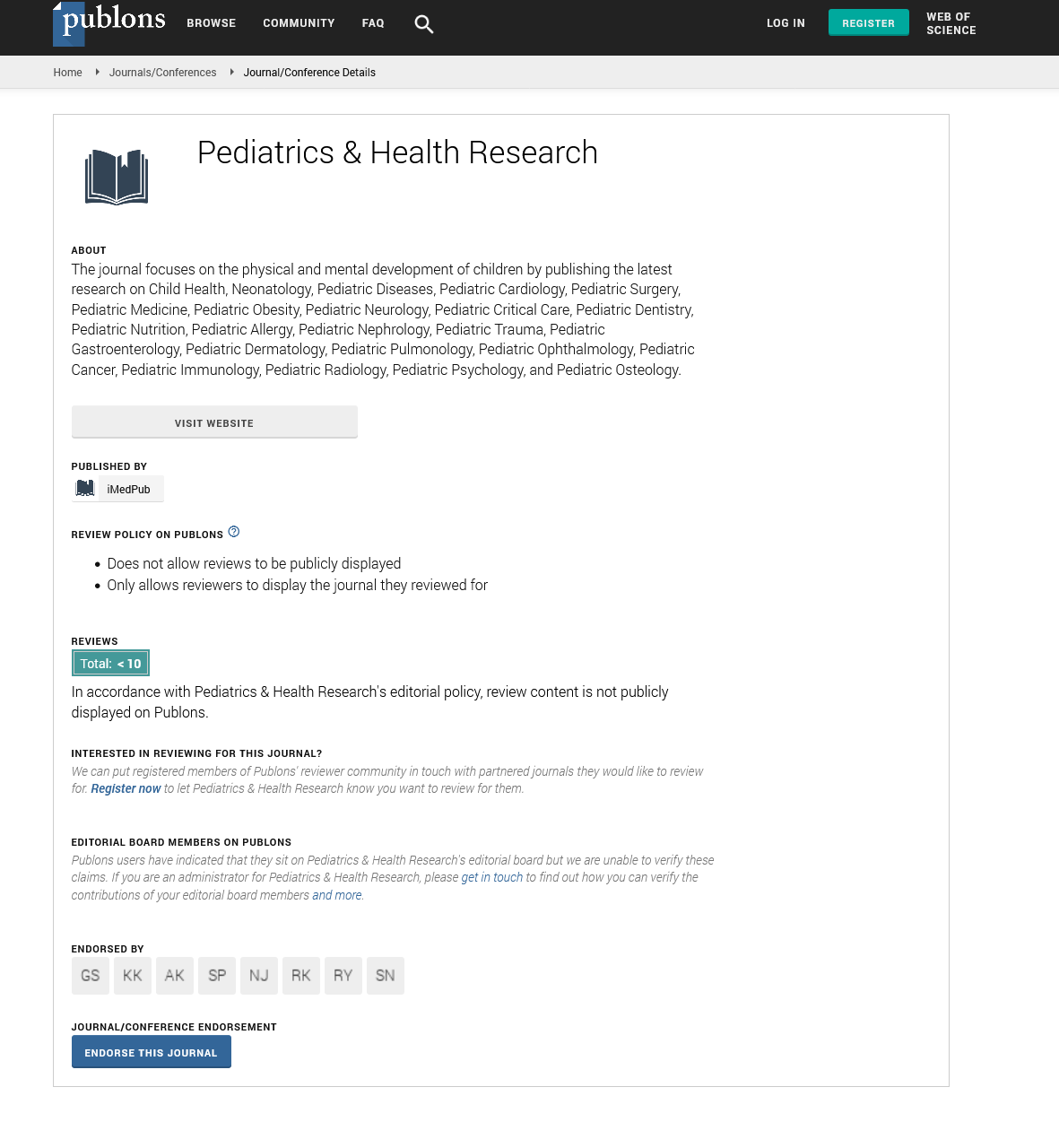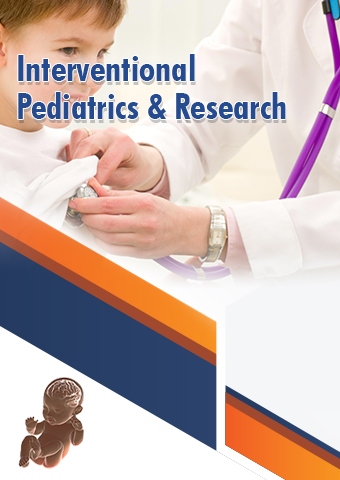Editorial - Interventional Pediatrics & Research (2023) Volume 6, Issue 3
Unraveling the Complexities: Exploring Complications After Heart Surgery
John Seth*
Department of Bio systems Engineering, Kangwon National University, Republic of Korea
- *Corresponding Author:
- John Seth
Department of Bio systems Engineering, Kangwon National University, Republic of Korea
E-mail: Sjohn45@gmail.com
Abstract
Heart surgery is a complex medical procedure performed to treat various cardiovascular conditions. While advancements in surgical techniques and postoperative care have significantly improved outcomes, complications can still occur after heart surgery, impacting patient recovery and long-term prognosis. This abstract provides an overview of common complications that can arise following heart surgery and highlights their clinical significance. The first category of complications involves surgical site issues, such as infections, wound complications, and excessive bleeding. Infections may manifest as surgical site infections or as deeper infections affecting the heart and surrounding tissues. Proper surgical techniques, sterile environments, and vigilant postoperative care are essential in minimizing the risk of these complications. Cardiovascular complications can arise after heart surgery. These include arrhythmias, myocardial infarction, heart failure, and cardiac tamponade. Arrhythmias, such as atrial fibrillation, are relatively common and can be managed with appropriate medication or interventions. Myocardial infarction, although rare, may occur due to inadequate blood supply during or after surgery, leading to damage to the heart muscle. Heart failure and cardiac tamponade may result from fluid accumulation around the heart, requiring immediate intervention to restore normal cardiac function. Respiratory complications represent another significant category after heart surgery. These can include pneumonia, atelectasis (partial lung collapse), and respiratory distress syndrome. Factors contributing to these complications include prolonged mechanical ventilation, reduced mobility, and compromised lung function. Preventive measures, such as early mobilization, chest physiotherapy, and aggressive respiratory support, are crucial in reducing their occurrence. Although infrequent, can have severe consequences. Stroke, cognitive decline, and delirium are potential complications resulting from emboli, hypo perfusion, or systemic inflammatory response. Special attention is required to identify and manage these complications promptly; minimizing long-term neurological impairment. Systemic complications encompass a range of issues affecting various organ systems. Acute kidney injury, gastrointestinal complications, and haematological disorders are examples of systemic complications. Close monitoring, optimal fluid management, and early intervention are essential in mitigating these risks. Heart surgery, while life-saving, can be associated with various complications that may affect patient outcomes. Surgeons, healthcare providers, and multidisciplinary teams must remain vigilant in recognizing, preventing, and promptly managing these complications to optimize patient recovery and enhance long-term prognosis. Advances in surgical techniques, perioperative care, and patient education continue to play a crucial role in reducing the incidence and severity of complications associated with heart surgery
Keywords
Heart surgery • Myocardial infarction • Bleeding systemic inflammatory
Introduction
Heart surgery, a life-saving procedure performed to address various cardiovascular conditions, has undoubtedly revolutionized the field of medicine. However, despite advancements in surgical techniques and post-operative care, complications can arise following heart surgery. These complications may pose challenges to patients’ recovery and necessitate further medical interventions. In this article, we delve into the intricacies of complications after heart surgery, exploring their types, causes, and potential management strategies [1,2].
Infection
One of the most common complications after heart surgery is infection. Surgical site infections can occur due to bacteria entering the incision site during or after the procedure. Infections may manifest as redness, swelling, pain, or drainage at the surgical site. Prompt diagnosis and appropriate treatment, such as antibiotics and wound care, are vital to prevent the infection from spreading and causing further complications [3].
Bleeding
Another potential complication is postoperative bleeding. Although surgeons take precautions to control bleeding during the procedure, patients may experience bleeding internally or at the incision site. Excessive bleeding can lead to hematomas, decreased blood pressure, or anaemia. Immediate medical attention and, in severe cases, surgical intervention may be necessary to address the underlying cause and prevent further complications [ 4,5].
Arrhythmias
Heart surgery can disrupt the heart’s electrical system, leading to arrhythmias. These irregular heart rhythms may manifest as palpitations, dizziness, or fainting. While some arrhythmias resolve spontaneously, others may require medication or additional procedures, such as cardioversion or placement of an implantable cardioverterdefibrillator (ICD), to restore normal heart rhythm [6].
Pulmonary complications
Patients undergoing heart surgery are susceptible to pulmonary complications, including pneumonia and atelectasis (partial lung collapse). These complications often arise due to reduced lung function following surgery, limited mobility, or the use of a ventilator during the procedure. Early mobilization, breathing exercises, and preventive measures such as chest physiotherapy and deep breathing techniques can help reduce the risk of pulmonary complications [7].
Kidney problems
Heart surgery can potentially affect kidney function. Reduced blood flow during surgery, the use of certain medications, and other factors may contribute to kidney complications such as acute kidney injury (AKI) or worsening of pre-existing kidney disease [8]. Close monitoring of kidney function, optimizing fluid balance, and appropriate medication adjustments can help mitigate the risk and manage these complications effectively.
Stroke
Although rare, strokes can occur during or after heart surgery. Factors that increase the risk include the formation of blood clots, embolisms, or plaque dislodgment. Symptoms may include weakness, difficulty speaking, or vision changes. Immediate medical intervention is crucial to minimize the impact of a stroke and prevent further damage [9,10].
Conclusion
Heart surgery, while offering significant benefits, carries inherent risks of complications. Vigilant monitoring, early detection, and timely intervention are crucial in managing these complications and promoting optimal recovery. Healthcare professionals play a pivotal role in identifying and addressing post-operative complications, ensuring the best possible outcomes for patients who undergo heart surgery. Ongoing research and advancements in surgical techniques will continue to enhance patient safety and improve long-term outcomes in the field of cardiac surgery.
References
- Renske O. International consensus recommendations on the diagnostic work-up for malformations of cortical development. Nat Rev Neurol. 16,618-635 (2020).
- Ratnam S, Michele MP, Robert M et al. MicroRNAs as biomarkers for birth defects. MicroRNA. 11, 2-11(2022).
- Ludvigsson, Jonas F, Ludvigsson J. Coeliac disease in the father affects the newborn. Gut. 49,169-175 (2001).
- Guerrini R. Genetic malformations of cortical development. Exp Brain Res. 173, 322-333(2006).
- Barkovich A. A developmental and genetic classification for malformations of cortical development: update 2012. Brain 135, 1348-1369(2012).
- Nolan J, Danielle M, Fink J. Genetics of epilepsy. Handb Clin Neurol. 148,467-491(2018).
- Pedro M. Advantages of current fetal neuroimaging and genomic technologies in prenatal diagnosis: A clinical case. Eur J Med Genet. 104-652(2022).
- Rikke S. From next-generation sequencing to targeted treatment of non-acquired epilepsies. Expert Rev Mol Diagn. 19,217-228(2019).
- Mark S. Gene-Environment Interactions During the First Thousand Days Influence Childhood Neurological Diagnosis. Semin Pediatr Neurol. 42, (2022).
- Benjamin H, Lianne G et al. Congenital Malformations and Genetic Disorders of the Respiratory Tract: (Larynx, Trachea, Bronchi, and Lungs). Am Rev Respir Dis. 120, 151-185(1979).
Indext at, Google Scholar, Crossref
Indext at, Google Scholar, Crossref
Indext at, Google Scholar, Crossref
Indext at, Google Scholar, Crossref
Indext at, Google ScholarCrossref
Indext at, Google Scholar, Crossref
Indext at, Google Scholar, Crossref
Indext at, Google Scholar, Crossref
Indext at, Google Scholar, Crossref


